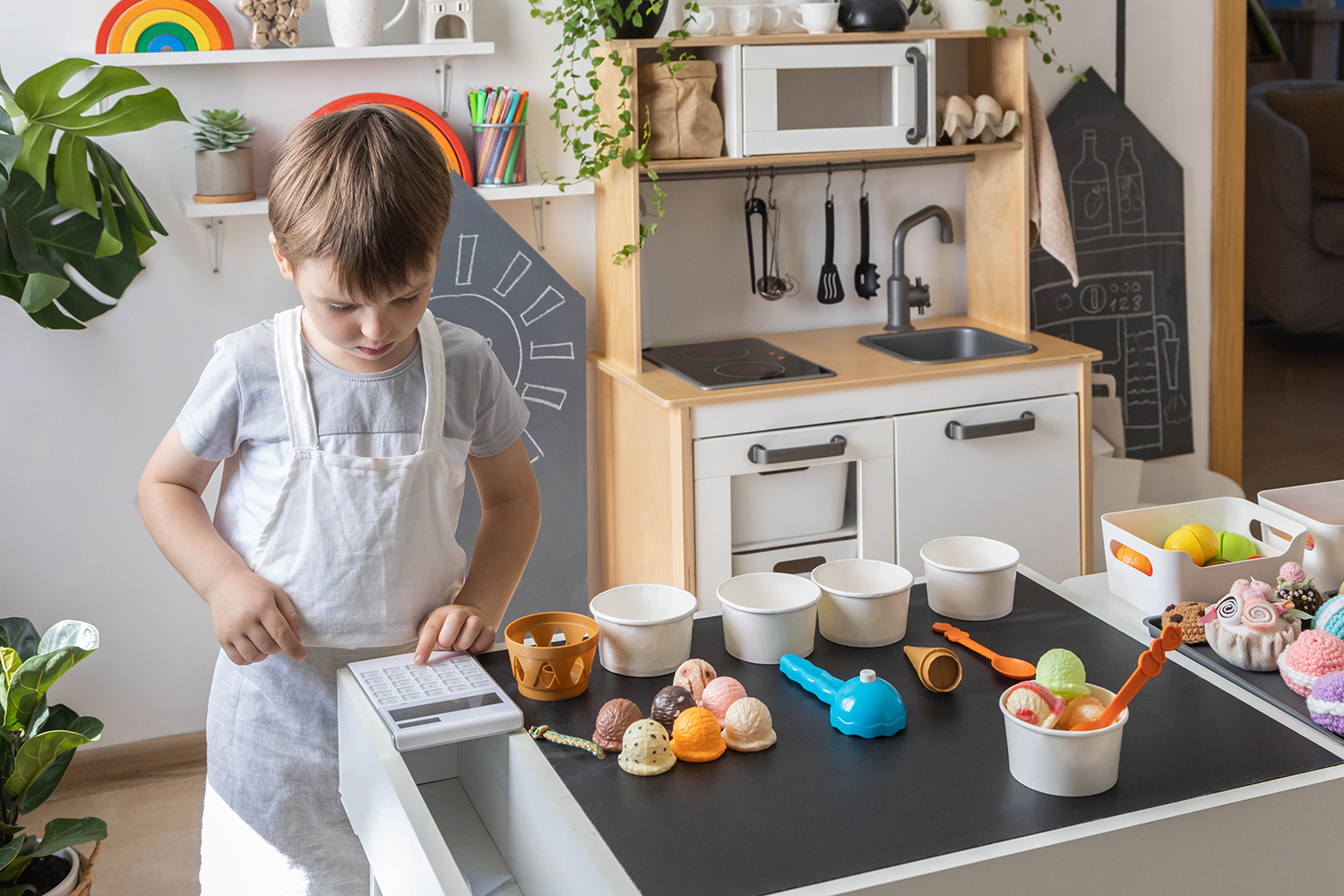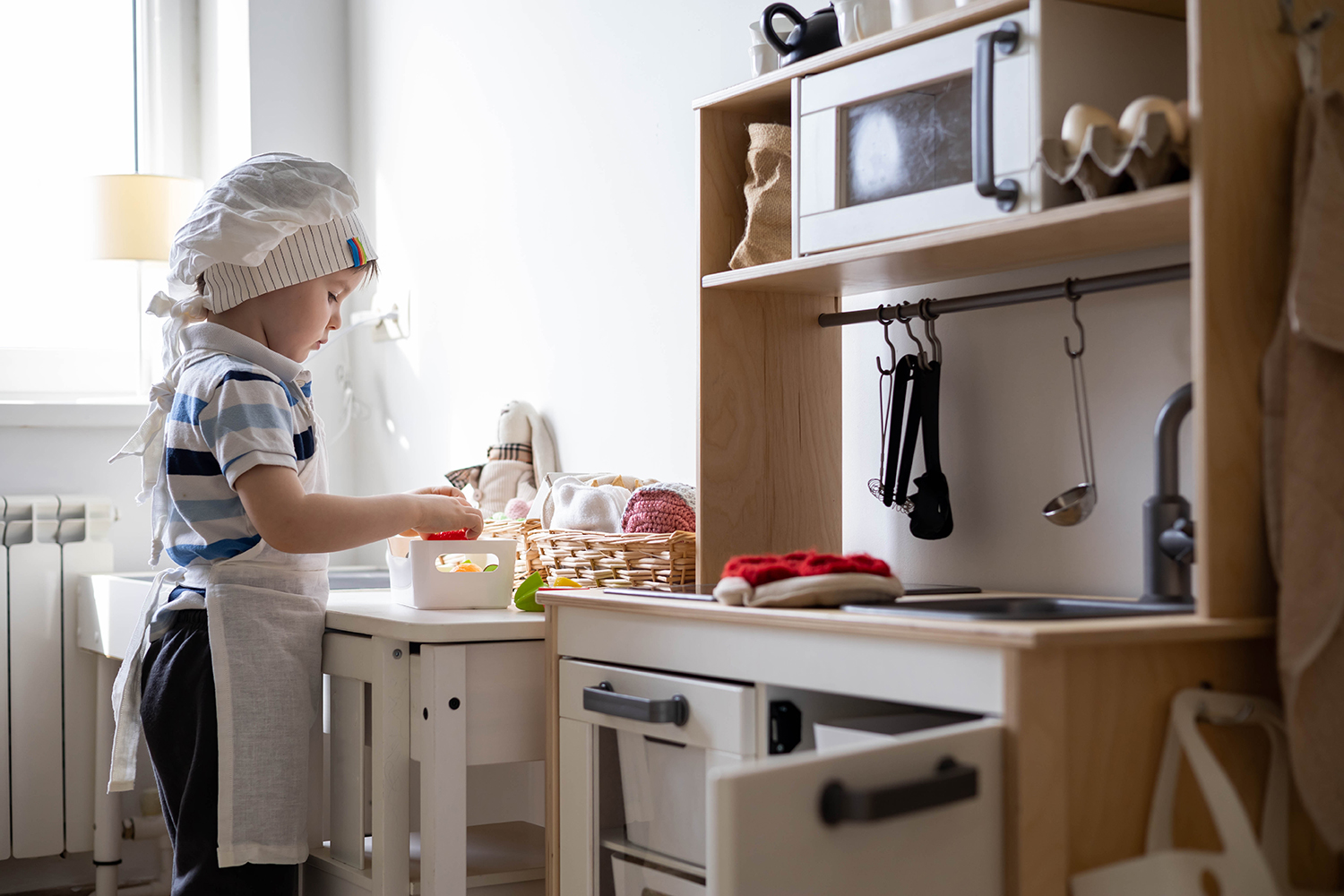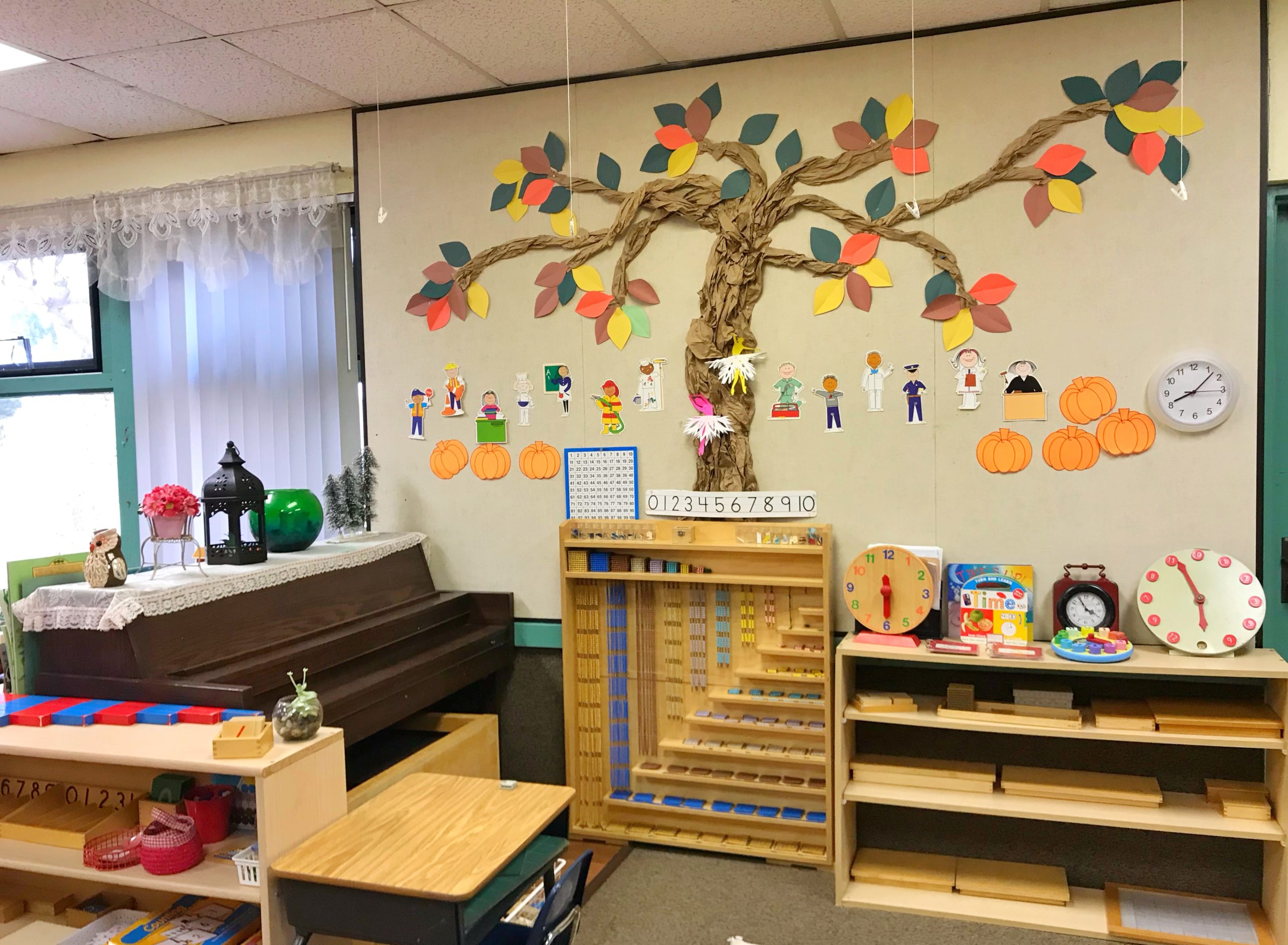
Achieving a controlled and efficient environment for children to develop freely is possible thanks to the Montessori method. In this case, one of the elements that can be used to promote children’s learning and autonomy are multifunctional kitchens, but what do they consist of?
As we have seen, the Montessori methodology helps children learn at their own pace and without pressure, with activities that prepare them for the real world. At Central Montessori Schools (CMS), we have a program designed for our children to be focused, independent, and innovative students. In addition, our activities will help them become responsible, respectful, and attentive individuals. Therefore, it is important for children to have activities at school and at home to reinforce their knowledge.
In recent months, multifunctional kitchens have become popular among all types of families, whether they are following the Montessori method or not. This is because this furniture allows children to learn about household chores while maintaining an orderly place. However, Montessori kitchens have many benefits if used correctly and not just as a toy. Therefore, in this article, we will show you the advantages of multifunctional kitchens for children and how they could be an excellent gift.
What are Montessori kitchens like?
The first thing to consider is that there are two types of kitchens. The first ones are the traditional plastic ones that have all their elements as toys. That is, children only play kitchen with items that they cannot use after the game, such as plates, glasses, or spoons. Additionally, a disadvantage of these toy kitchens is that when children grow up, they can no longer use them, as they have a very short lifespan. Therefore, this type of kitchen is not recommended for children following the Montessori method. However, during early childhood, they can be useful for practicing role-playing.
On the other hand, kitchens designed with the Montessori methodology provide a dynamic and real functional space for children. This means that children can get involved with their parents when cooking. Montessori kitchens are usually made entirely of wood, with real drawers and countertops. Additionally, they have space to store dishes, hang cloths and kitchen utensils, such as spatulas and ladles. Also, there are models where you can place a mini-fridge or a four-liter mini-refrigerator to store small items that need to remain cold.
Another feature that draws attention to Montessori multifunctional kitchens is that they have real water. Although they do not have a pipeline like traditional kitchens in houses, this version has a hole where you can place a hose and an automatic water dispenser. In this case, the dispenser will function as the kitchen taps, while the hose will connect to a water cooler to extract the liquid. With this, you will ensure that your children can wash their own dishes and glasses when they finish eating. They can even help you clean fruits or vegetables while feeling included in daily activities.
Advantages of Montessori Kitchen

In addition to helping you wash food ingredients or their dishes, other advantages of the Montessori kitchen are:
Custom-made: unlike toys, Montessori kitchens can be built to the child’s measurements or be slightly taller so that they last longer. Also, the kitchens sold in specialized Montessori stores usually measure 1.10 meters, making it a good long-term purchase.
The child becomes independent and responsible: thanks to its multiple drawers and cabinets, the child can store their own cutlery, plates, and glasses and grab them at any time without having to ask for help. Also, they will learn that after eating, they should clean up what they messed up and put it away again.
A single expense: although they might seem expensive, Montessori kitchens can be designed with wood, reinforced plastic, or plywood. Also, it will only be one expense, as you will not have to keep buying toys to decorate the kitchen, but use your own utensils. Additionally, the Montessori method indicates that children can use glass plates and glasses so they understand the value of things if they break, so you will not have to acquire special dishes.
Development of multiple intelligences: finally, another benefit of Montessori kitchens is that they can develop different intelligences and skills through active play. For example, you can ask them to arrange by size, color, or quantity of objects. Likewise, with the different textures of each material, you will improve their fine and gross motor skills.
In conclusion, Montessori kitchens are very helpful in fostering children’s independence and autonomy. At CMS, we have special activities to apply at home. With this, children will continue learning in their homes. Remember that the kitchen must be located in an accessible place for the child, preferably in their room or in your home’s kitchen. Additionally, you can equip your own kitchen with Montessori items designed for children. If you are interested in them or still do not have the resources for a Montessori multifunctional kitchen, you can check out the article ‘Benefits of Using Montessori-Style Utensils’ on our blog to learn how to adapt your kitchen.




